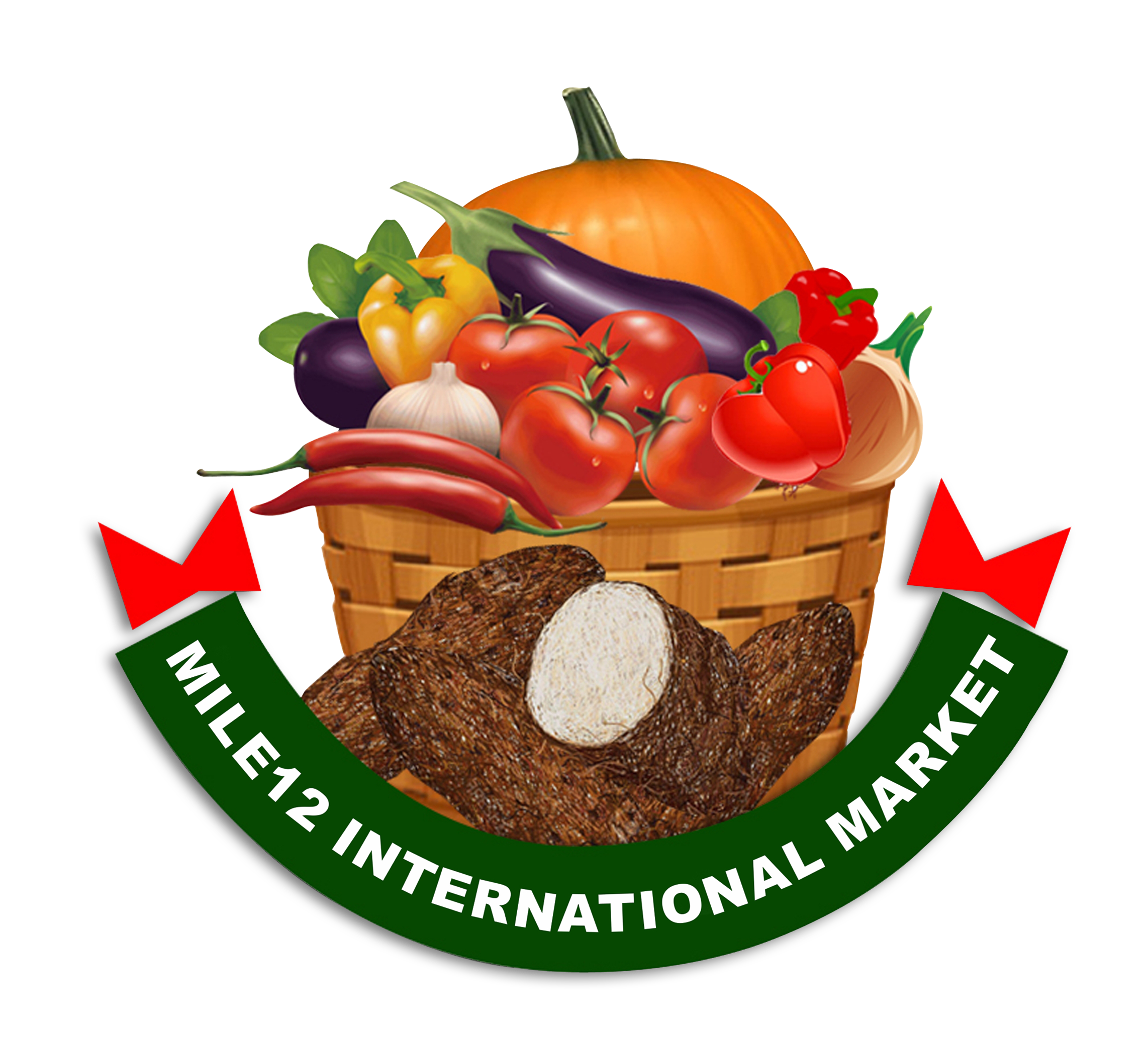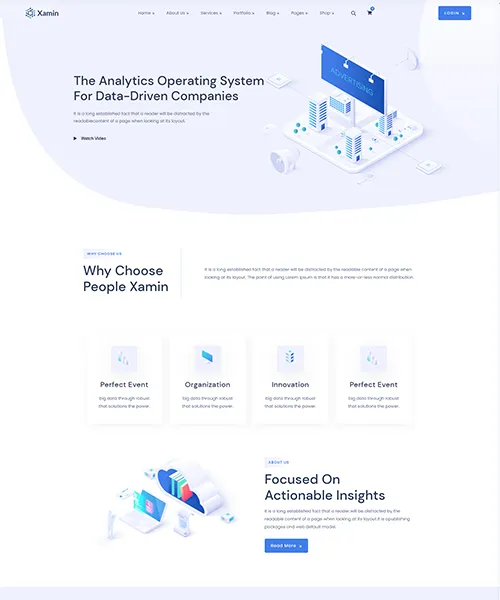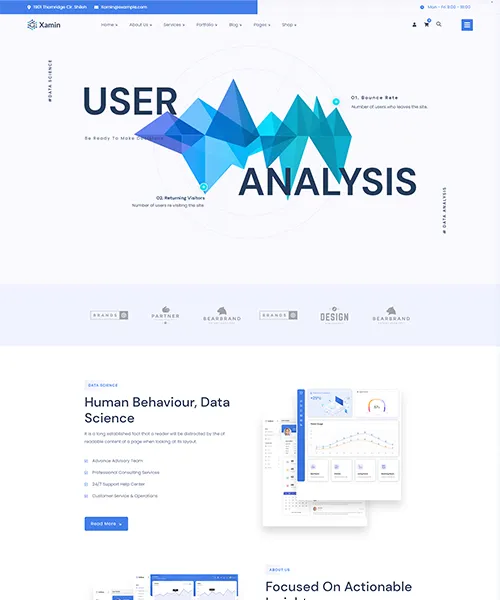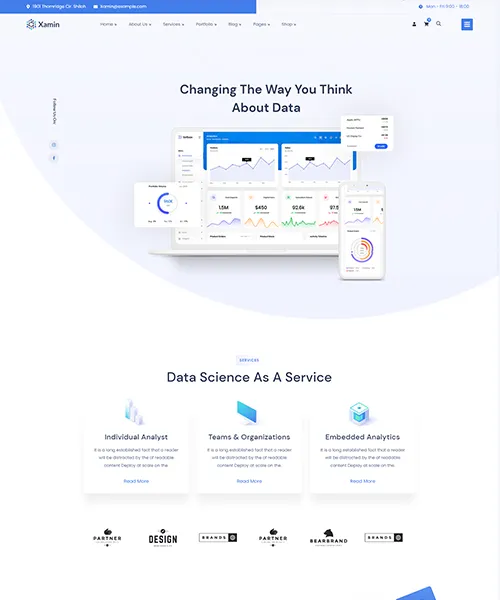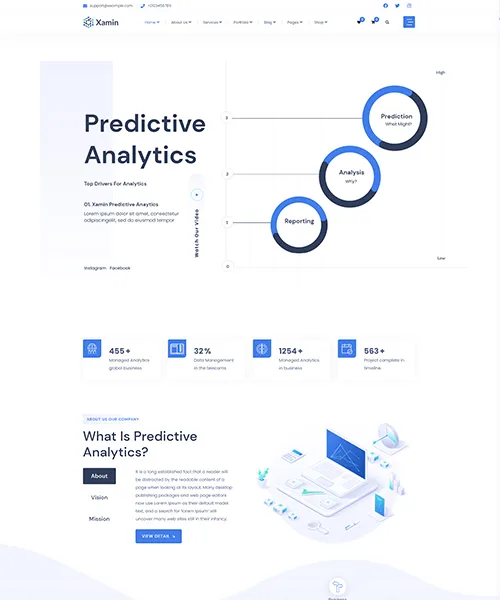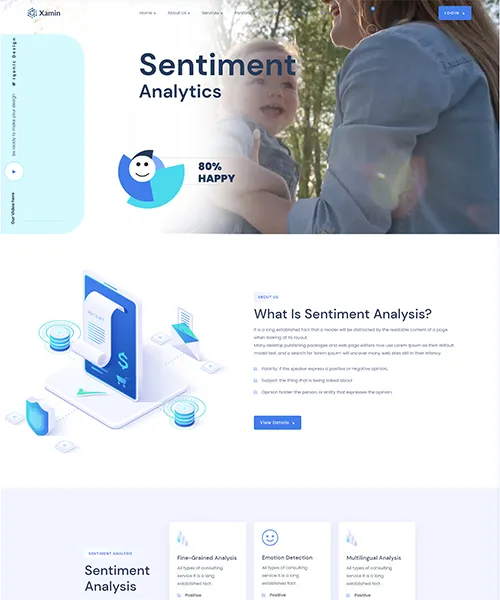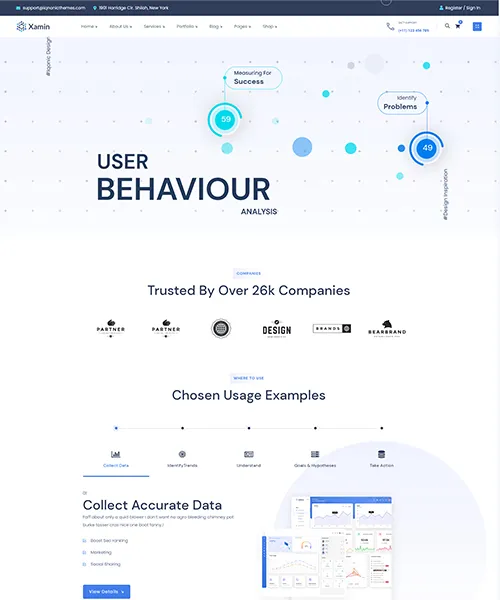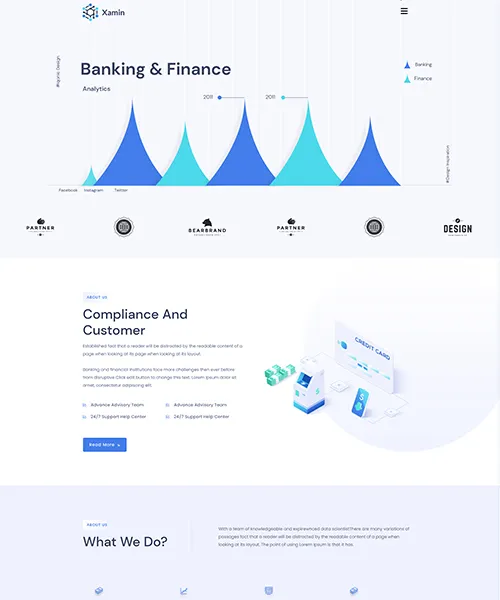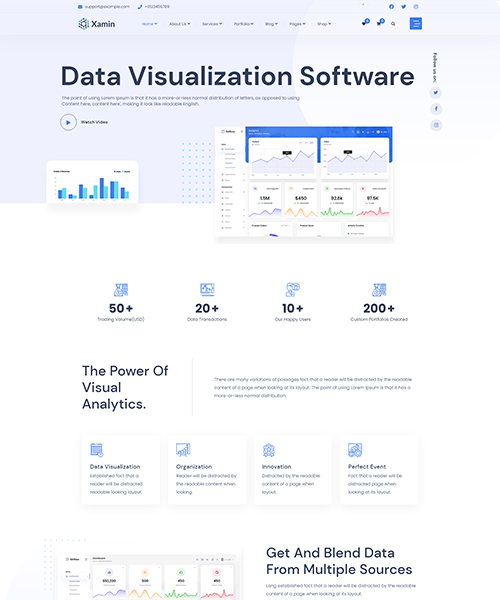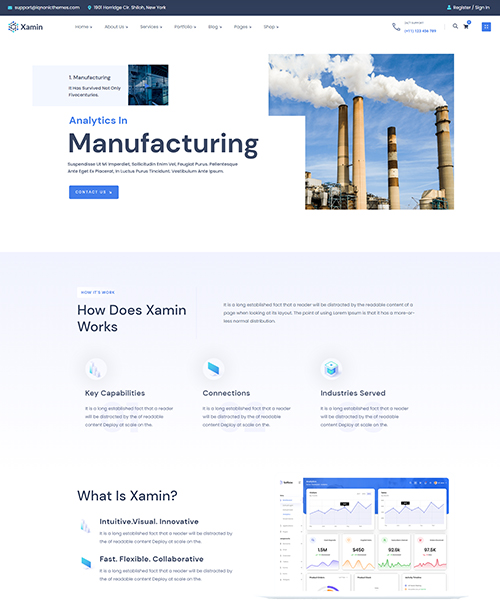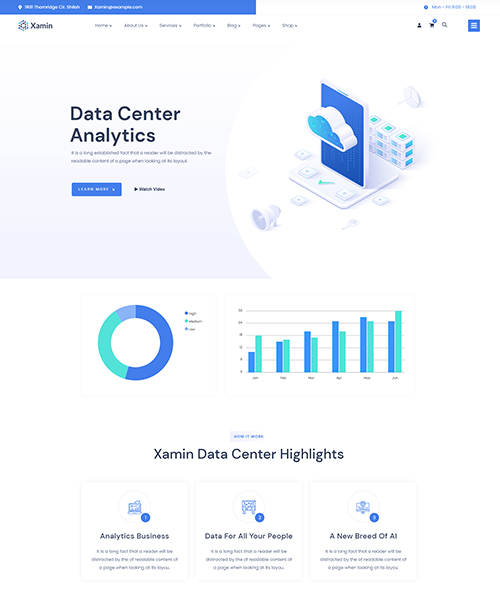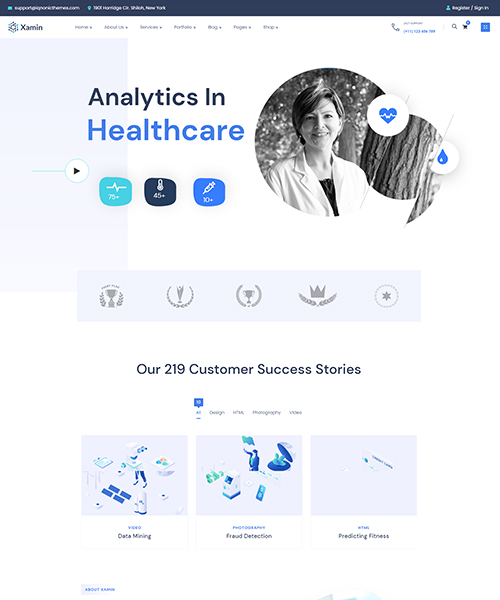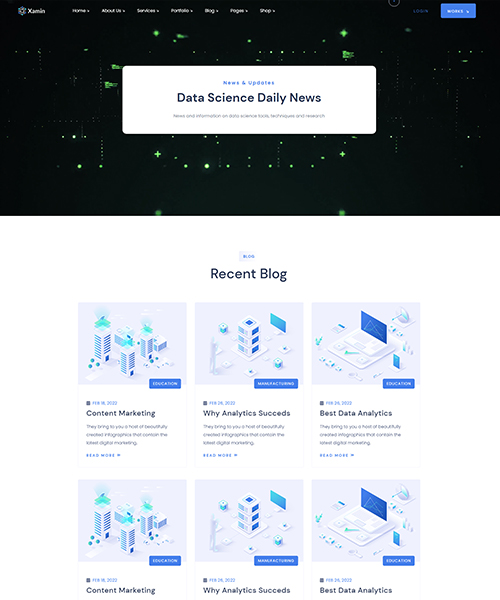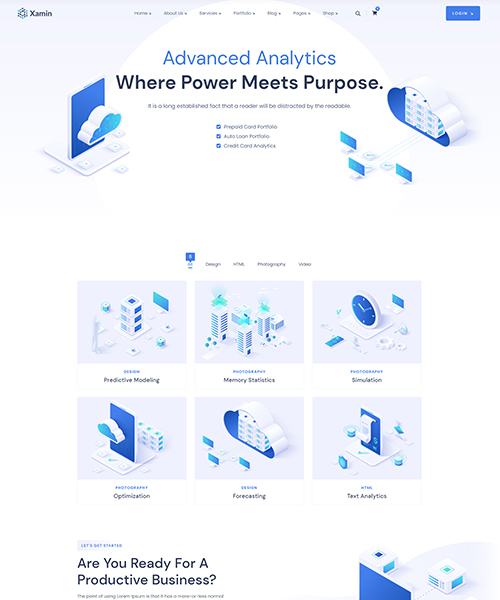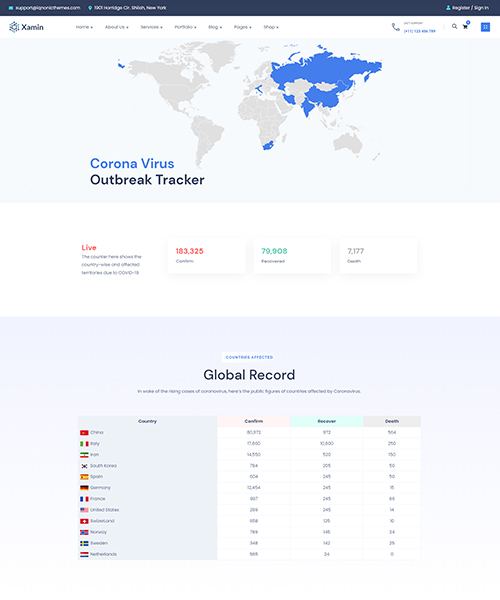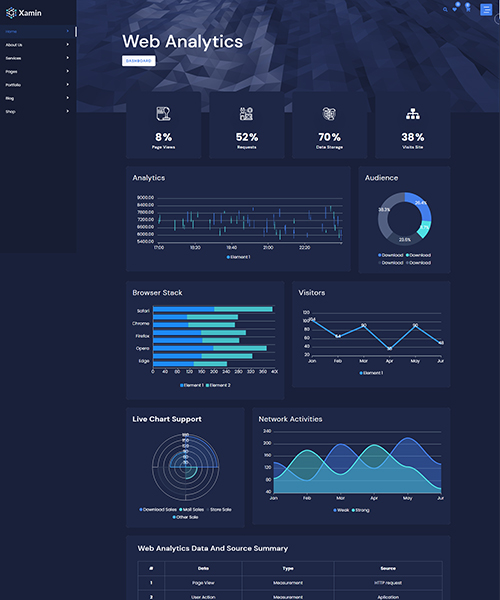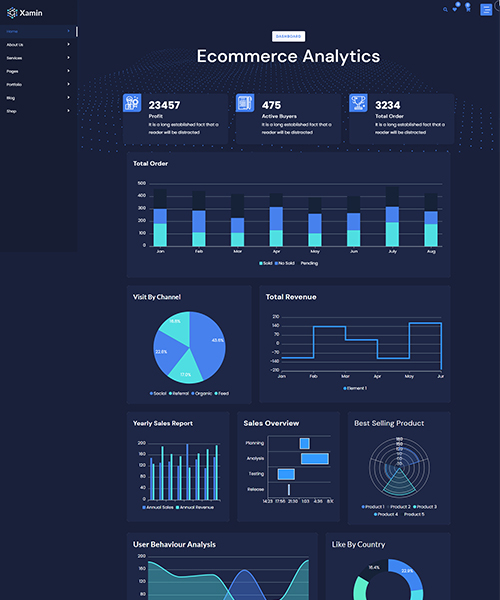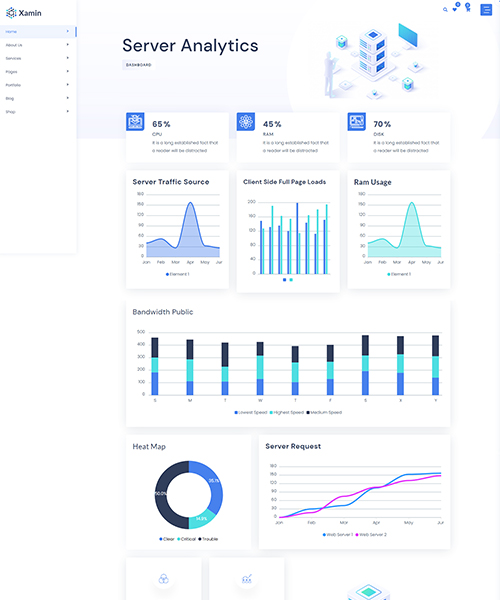About Us
Human Behaviour, Data Science
It is a long established fact that a reader will be distracted by the of readable content of a page when looking at its layout.
- Advance Advisory Team
- Professional Consulting Services
- 24/7 Support Help Center
- Customer Service & Operations
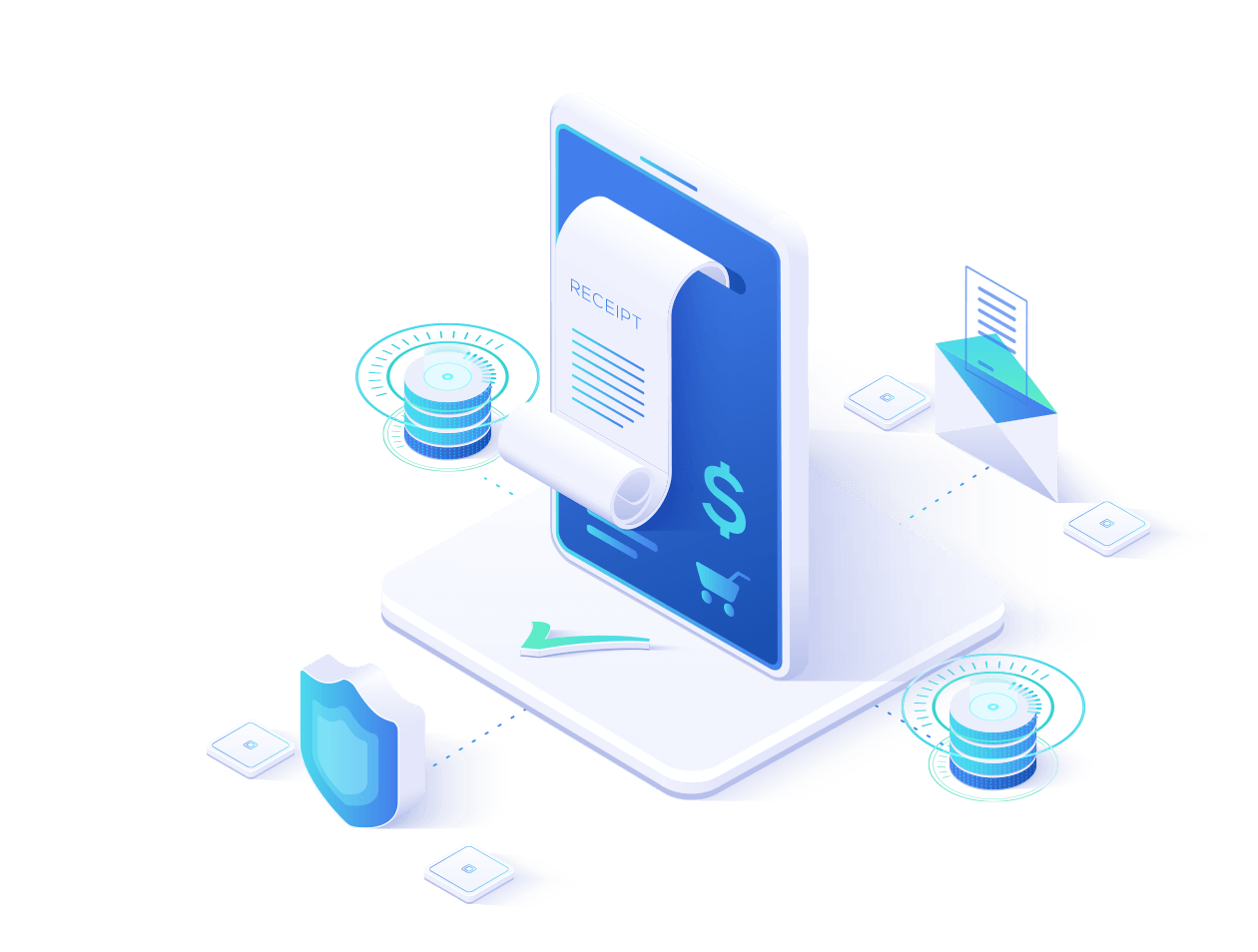
Easy to Customize
It is a long established fact that a reader will be distracted by the readable content of a page when looking at its layout.
24/7 Support
It is a long established fact that a reader will be distracted by the readable content of a page when looking at its layout.
Advisory Team
It is a long established fact that a reader will be distracted by the readable content of a page when looking at its layout.
OUR HISTORY
Xamin Company History


2012 – 2013
The point of using Lorem Ipsum is that it has a more-or-less normal distribution of letters, as opposed to using ‘Content here, content here’, making it look like readable English. Many desktop publishing packages.

2013 – 2014
The point of using Lorem Ipsum is that it has a more-or-less normal distribution of letters, as opposed to using ‘Content here, content here’, making it look like readable English. Many desktop publishing packages.

2014 – 2015
The point of using Lorem Ipsum is that it has a more-or-less normal distribution of letters, as opposed to using ‘Content here, content here’, making it look like readable English. Many desktop publishing packages.

2016 – 2019
The point of using Lorem Ipsum is that it has a more-or-less normal distribution of letters, as opposed to using ‘Content here, content here’, making it look like readable English. Many desktop publishing packages.
TEAM
Management Team
Newsletter

